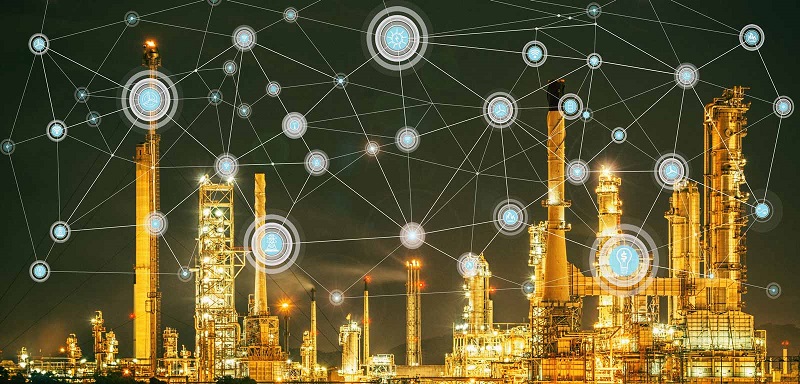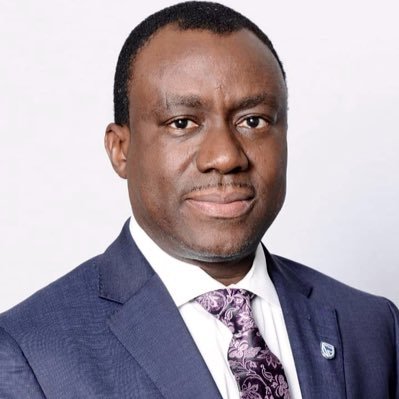BUA Group Refinery and Petrochemicals has joined Dangote Refinery in an ambitious drive to reduce Nigeria’s dependence on imported fuels and petrochemicals. Both will be bringing in a joint capacity of 850,000 bpd. While Nigeria imports 90% of its petroleum products, it spends a significant 35% of its forex earnings on same. Both will be fixated on the West African regional market, riding on its adjoining marine infrastructure for export.
Yet the battle will lie in how much value both firms can extract from their oil and gas value-chain. Digitalization will lead the way. There is a big shift to digitalization and this holds even greater potential, particularly given the deliberate push by many companies to optimize their oil and gas value chain.
The arrival of intelligent refineries
Digitalization demands an integrated and dynamic model that takes advantage of IoT for data gathering, cloud computing infrastructure for hosting this data, artificial intelligence and machine learning models to process this data and provide actionable insights. With digital infrastructure, greenfield refineries like those being built by the Dangote and BUA Groups will have visibility throughout the value chain, helping them to accurately learn about impending changes and take decisions to adapt quickly.
Both being greenfield projects, now is the right time to incorporate digitalization ground-up into the overall project plans, thereby stemming the onslaught of obsolescence. The inception of Industry 4.0 is challenging business leaders to take cognizant of the likelihood of their project becoming technologically obsolete in the 4 to 5 years it takes to design and build them.
Strategy& (a part of PWC network), pointed out that many oil and gas company leadership teams understand that digitization is more than an opportunity — it is an imperative. It went further to explain the benefits of digitization for oil and gas companies as: operating costs reduced by 12 percent to 20 percent; throughput improved by 6 percent to 12 percent, unplanned shutdowns reduced by 15 percent to 25 percent, efficiency of plants increased by 8 percent to 12 percent, HSSE performance improved and workforce productivity improved.
Succeeding in digitalization
The success of digitalization is anchored on using remote sensors and devices to gather data from all possible sources and transmit same to data warehouses through a communication network. We have to deploy IoT technologies and connect all the devices and equipment. Wireless sensors will gather and transmit process parameters across the plant and personnel enabled with smart devices will get actionable analytics and insights. Since most modern refineries now have Advanced Process Controls and Multi-Variable Controls (APC and MVC) for operating the process units, and Asset Management tools for maintenance for equipment and vessels, must be connected.
This dynamic model can be more calibrated to provide better decisions for refiners if the digitalized data from other departments also flows into it. With this we can shift plant maintenance to prescriptive maintenance, solving the mysteries that maintenance managers always confront.
As result, refineries powered by intelligent APM tools are now able to predict technical failures in advance, based on vibration patterns that they have learned and would be able to point when a mechanical seal is wearing out. It can also learn from heat patterns of the reformer refractor materials and suggest timelines for its replacement. In addition to diagnostics, it can prescribe a solution for preventing the failure. This data which will also be feed into an optimizer can suggest load balancing, shutdown of a unit and make changes to the refinery schedule by adjusting the crude slate appropriately.
A Strategy& approach
With the fast pace of technological innovation and the complexity of a downstream business, it explained that refiners and petrochemicals firms like BUA and Dangote Groups can capture the full value of digitization only if they apply a structured, systematic approach. Strategy& approach consists of three specific areas:
First, companies need to prioritize their digitization efforts by linking them to the functions with the maximum value. The emphasis here is on enabling operations and maintenance excellence; linking the supply chain digitally; and adopting smart health, safety, security, and environment (HSSE) and fire services.
To achieve this, a true, near-real-time management and optimization of the entire supply chain will require omnipresent visibility and a simultaneous computation of planning, scheduling and execution of real-time procurement, supply, manufacturing and distribution at all levels. Now, optimizing maintenance and refinery can be addressed by digitalizing the activities of refinery by employing digital technologies such as data analytics, Machine learning and artificial intelligence on this digitalized data for achieving maximum optimization. The outcome can be seen on mobile devices.
Second, more so, even has oil and gas firms pursue digitalization, the urgency is to continuously attract the key talents to sustain this drive. There’s need to build foundational capabilities in areas such as data and analytics, technology architecture, talent and culture, and cybersecurity. By doing this, we will be preparing both firms for ongoing digital transformation, even as the underlying technology evolves.
Strategy& finally advised that rather than the traditional approach to IT implementation — large-scale programs that take years to complete — downstream oil and gas companies should apply a more agile approach. Specifically, they posit that firms need to assess their digital maturity across selected lines of business, pilot a few new technologies linked to business priorities, and scale up the initiatives that have proven their applicability and delivered associated benefits.
Executing on a digitalization strategy
Traditionally enterprises are known to be departmentalized and work in silos. But to achieve operational excellence will require both firms to maximize optimization for the whole enterprise organization from crude oil supply to wholesale/retail delivery infrastructure with the whole value chain digitally included. Delivering on enterprise level digital integration from our partner’s experience requires a more holistic approach where all departments of the enterprise are factored in.
Lessons from Digitalization project
We have learnt that digitalization rides on a digital backbone which will be an assemblage of processes, workflows, methodologies and new skillsets. An Agile way of working will help in delivering IT solutions and shippage augmentations that can be continuously integrated with the cloud. Then the focus we advise should shift to change management to train both personnel and leaders in new ways of working.
In all, digitalization guarantees production excellence, ensuring production is at or above capacity, reduce feed costs and energy consumption, produce higher-value products, reduce or eliminate losses, maximize profits from blending products and reduce off-grade product in transitions, among others. Digitalization enables a continuous improvement in asset availability, reliability and integrity through increased preventive, predictive and prescriptive maintenance and reduced turnaround (TA) time.
Caesar Keluro works for Nanocentric Technologies. He is also the Founder of ‘Make In West Africa’, a Thinktank.










